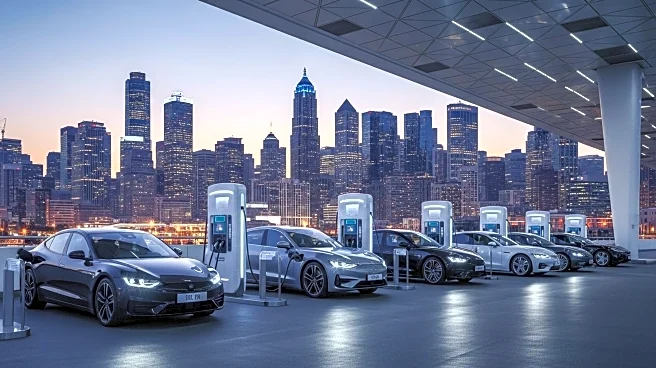What's Happening?
The U.S. electric vehicle (EV) industry is navigating changes following the end of federal tax credits for EV purchases. Automakers are introducing new models and promotions to mitigate the impact, with companies like Ford and General Motors offering lease credits. State governments are also increasing incentives, such as Colorado's enhanced tax credit for EV purchases. Despite the loss of federal incentives, the industry is poised for growth with the introduction of new models and increased consumer education.
Why It's Important?
The removal of federal tax credits poses a challenge for the U.S. EV market, potentially dampening consumer enthusiasm and affecting sales. However, automakers' promotions and state incentives may help stabilize the market. The industry's ability to adapt and innovate is crucial for maintaining momentum in the transition to electric vehicles, especially as global competitors like China and the EU advance their electrification efforts. The situation highlights the importance of supportive policies and consumer education in driving EV adoption.
What's Next?
Automakers are expected to continue offering promotions and introducing new models to attract consumers. The industry will focus on consumer education about the benefits of EVs, such as lower fuel and maintenance costs. The introduction of new models will provide more options for consumers, potentially boosting sales despite the loss of federal tax credits. The market is likely to see a 'soft landing' as automakers and state governments work to support EV adoption.








